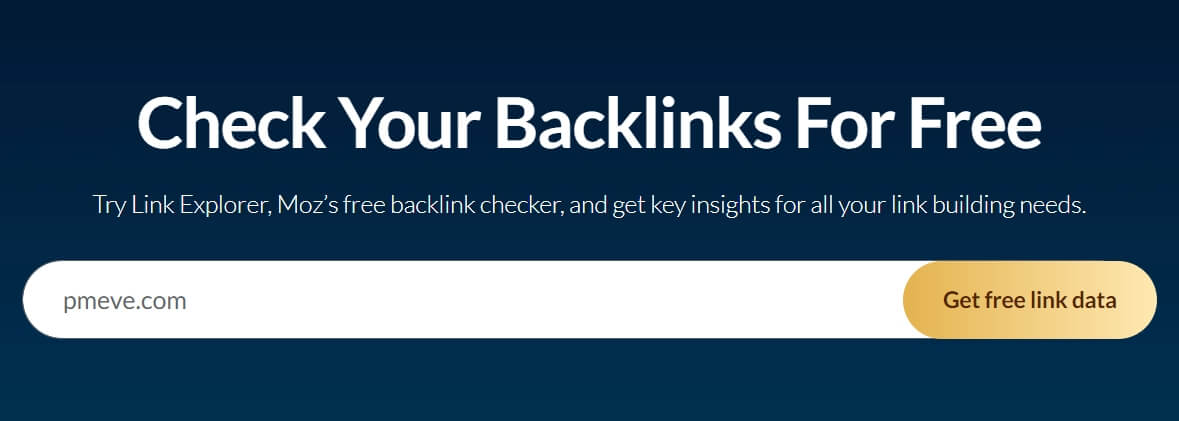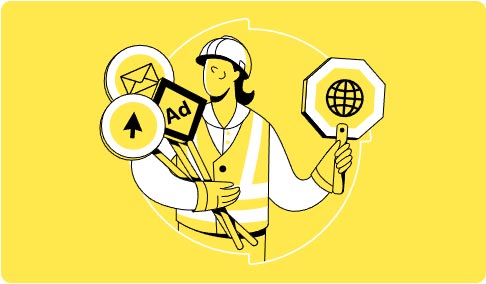Link building is an essential aspect of off-page SEO optimization. When other websites link to yours, it signals to Google that your site is trustworthy, contributing to the development of your Domain Authority (DA). This is a key metric used to evaluate how competitive your site is when targeting specific keywords.
Search engines like Google consider the quantity, quality, and relevance of links when ranking a webpage or website. This link-building checklist will guide you in creating more high-quality backlinks for your site.
Off-Page SEO Checklist (Also Known as Link Building)
27. Analyze Competitors' Backlink Profiles
Tools like Moz’s Link Explorer and Ahrefs Site Explorer allow you to see which websites and pages are linking to your competitors.

Understanding the context of these links is especially helpful: Why are these websites linking to your competitors? What content on these pages makes them worthy of a link?
By identifying these trends (for instance, if competitor blogs are frequently cited by journalists), you can figure out which partners to collaborate with. Additionally, you can learn what other website owners in your niche are looking for, so you can offer enough value to earn high-quality backlinks.
28. Write Guest Posts
One of the best ways to build backlinks is by focusing on partnerships and identifying who you can offer value to.
For instance, if you know a beauty blogger who frequently reviews skincare products similar to what you sell, a simple introduction could be the start of a mutually beneficial relationship.
Alternatively, you can search for websites actively looking for content contributors. When you provide content to these sites, they typically include a backlink to your website in the author bio section in return.
You can find guest post opportunities using search phrases like:
[Your niche] + "write for us"
[Your niche] + "contribute"
[Your niche] + "guest post"
For example, travel blogs often seek guest post contributions.
29. Earn Media Mentions
The snowball effect is incredibly powerful: when you earn one high-quality backlink, your ranking improves. As your ranking improves, your site gets more views and traffic, leading to more high-quality backlinks.
—William McGrath, CEO of Classy Women Collection
Journalists are always on the lookout for newsworthy stories to cover in their publications. Building relationships with these journalists can help you get featured on authoritative websites, generating strong backlinks to your site. William McGrath, CEO of Classy Women Collection, understands the value of investing time in link-building. “The snowball effect is incredibly powerful,” he says. “When you earn one high-quality backlink, your ranking improves. As your ranking improves, your site gets more views and traffic, leading to more high-quality backlinks.”
Here are a few simple ways to get media coverage:
Participate in awards or competitions
Issue press releases
Promote social causes
Send product samples to writers
30. Request Branded Links
If your brand has gained some recognition, consider using brand monitoring tools to find mentions of your store or products on websites that haven’t included a link. You can politely request that the author or publication add a link where they’ve mentioned your brand.
David Richter, founder of ClickPop, uses SEO tools like Screaming Frog to scan client websites for instances where products or brands are mentioned but not linked. He then converts these mentions into internal links using the relevant anchor text.
“Essentially, you're telling Google, 'Yes, I’m adding a link to my own content, and I can vouch for the relevance of my webpage.' It’s highly effective, and aside from time, it’s virtually free,” David says.
By following these link-building techniques, you can strengthen your site's domain authority, improve search rankings, and ultimately increase traffic and conversions.



